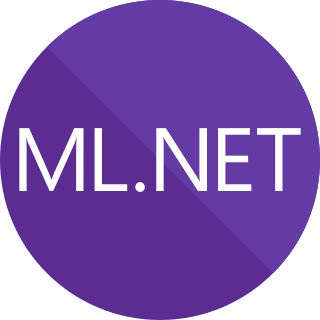Related Research Articles

SOAP is a messaging protocol specification for exchanging structured information in the implementation of web services in computer networks. Its purpose is to provide extensibility, neutrality, verbosity and independence. It uses XML Information Set for its message format, and relies on application layer protocols, most often Hypertext Transfer Protocol (HTTP), although some legacy systems communicate over Simple Mail Transfer Protocol (SMTP), for message negotiation and transmission.

Django is a Python-based free and open-source web framework that follows the model-template-view (MTV) architectural pattern. It is maintained by the Django Software Foundation (DSF), an American independent organization established as a 501(c)(3) non-profit.

Symfony is a PHP web application framework and a set of reusable PHP components/libraries. It was published as free software on October 18, 2005 and released under the MIT license.
The Framework Programmes for Research and Technological Development, also called Framework Programmes or abbreviated FP1 to FP7 with "FP8" being named "Horizon 2020", are funding programmes created by the European Union/European Commission to support and foster research in the European Research Area (ERA). The specific objectives and actions vary between funding periods. In FP6 and FP7 focus was still in technological research, in Horizon 2020 the focus is in innovation, delivering economic growth faster and delivering solutions to end users that are often governmental agencies.
This is a comparison of notable web frameworks, software used to build and deploy web applications.
CodeIgniter is an open-source software rapid development web framework, for use in building dynamic web sites with PHP.
An application programming interface (API) is a computing interface which defines interactions between multiple software intermediaries. It defines the kinds of calls or requests that can be made, how to make them, the data formats that should be used, the conventions to follow, etc. It can also provide extension mechanisms so that users can extend existing functionality in various ways and to varying degrees. An API can be entirely custom, specific to a component, or it can be designed based on an industry standard to ensure interoperability. Some APIs have to be documented, others are designed so that they can be "interrogated" to determine supported functionality. Since other components/systems rely only on the API, the system that provides the API can (ideally) change its internal details "behind" that API without affecting its users.

Flask is a micro web framework written in Python. It is classified as a microframework because it does not require particular tools or libraries. It has no database abstraction layer, form validation, or any other components where pre-existing third-party libraries provide common functions. However, Flask supports extensions that can add application features as if they were implemented in Flask itself. Extensions exist for object-relational mappers, form validation, upload handling, various open authentication technologies and several common framework related tools. Extensions are updated far more frequently than the core Flask program.

KDE Frameworks is a collection of libraries and software frameworks readily available to any Qt-based software stacks or applications on multiple operating systems. Featuring frequently needed functionality solutions like hardware integration, file format support, additional graphical control elements, plotting functions, spell checking the collection serves as technological foundation for KDE Plasma 5 and KDE Applications distributed under the GNU Lesser General Public License (LGPL).
Phalcon is a PHP web framework based on the model–view–controller (MVC) pattern. Originally released in 2012, it is an open-source framework licensed under the terms of the BSD License.

.NET Core is a free and open-source, managed computer software framework for Windows, Linux, and macOS operating systems. It is a cross-platform successor to .NET Framework. The project is primarily developed by Microsoft and released under the MIT License.

ML.NET is a free software machine learning library for the C# and F# programming languages. It also supports Python models when used together with NimbusML. The preview release of ML.NET included transforms for feature engineering like n-gram creation, and learners to handle binary classification, multi-class classification, and regression tasks. Additional ML tasks like anomaly detection and recommendation systems have since been added, and other approaches like deep learning will be included in future versions.
The 2019–20 Liga MX Femenil season is the third season of the top-flight women's football league in Mexico. The season was contested by nineteen teams, all being the counterpart women's teams of the men's league clubs Liga MX. The season was split into two championships—the Torneo Apertura and the Torneo Clausura—each in an identical format and each contested by the same nineteen teams. Unlike the two previous editions. As of this season, the participating teams will face each other instead of being divided into two groups.
Pisoniviricetes is a class of RNA viruses which infect eukaryotes. Member viruses have a positive-sense single-stranded RNA genome. The name of the group is a portmanteau of member orders "picornavirales, sobelivirales, nidovirales" and -viricetes which is the suffix for a virus class.
Drogon is a HTTP application framework written in C++, supporting either C++17 or C++14 with Boost. The name Drogon comes from the dragon named Drogon in the TV series Game of Thrones.
Actix is an actor and web framework written in Rust. It supports both HTTP/1.x and HTTP/2, WebSockets, TLS/SSL, content compression and decompression, and other features. The authors emphasize Actix's performance, which is confirmed by independent studies; for example, Actix is among the fastest web frameworks according to benchmarks performed by TechEmpower.
Rocket is a web framework written in Rust. Its design was inspired by Rails, Flask, Bottle, and Yesod.
References
- ↑ "Pistache". pistache.io. Retrieved 2020-05-30.
- ↑ "r/cpp - Comment by u/octall on "What is the best C++ Webserver Framework?"". reddit. Retrieved 2020-05-30.